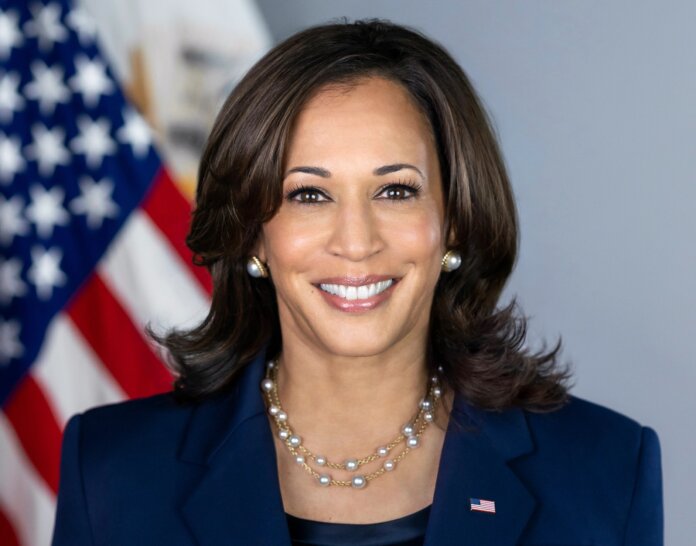As part of her Economic Opportunity Tour, U.S. Vice President Kamala Harris will join Michigan Gov. Gretchen Whitmer, U.S. Secretary of Energy Jennifer Granholm and acting Secretary of Labor Julie Su in Detroit to announce more than $100 million in new funding and resources for small- and medium-size auto manufacturers and autoworkers.
Thanks to the Biden-Harris administration’s Investing in America agenda, companies have announced more than $170 billion in investments in electric vehicle and battery supply chain manufacturing, making the U.S. the global leader for EV manufacturing investment.
The U.S. auto industry has added over 250,000 jobs, after losing 90,000 jobs under the previous administration. More than 20 auto and battery plants have been announced under the Biden-Harris administration after no new net plants were opened under the previous administration.
The more than $100 million in funding for small- and medium-size auto parts manufacturers will be allotted in these areas:
- The Department of Energy will set aside $50 million of its Automotive Conversion Grants Program for partnerships with states to help small- and medium-size suppliers convert from manufacturing internal combustion engine parts to manufacturing parts for the EV supply chain. This funding will maintain the Domestic Conversion Grant’s same focus on supporting retooling to keep good, good-paying and union jobs in the same communities as automakers and auto suppliers transition to EV manufacturing in America.
- The DOE is setting aside up to $50 million of its Industrial Assessments Center Implementation Grants Program to help auto suppliers kick-start manufacturing diversification and conversion projects. Specifically, this program, which was funded by Biden’s Bipartisan Infrastructure Law and is covered under the Justice40 Initiative, provides grants of up to $300,000 to entities that have received an Industrial Assessment Center assessment to improve their facilities’ energy and material efficiency, cybersecurity, or productivity, or reduce greenhouse gas emissions.
- The Small Business Administration will leverage its Small Business Investment Company program to catalyze millions of dollars in private capital for the EV supply chain to help small- and medium-size manufacturers grow and diversify their businesses. The DOE will partner with the Small Business Administration to provide technical expertise to de-risk private investments and lower the cost of capital for small and medium-sized manufacturers.
- The Small Business Administration plans to establish a new Working Capital Pilot Program under its signature 7(a) lending program to provide lines of credit to small businesses, including auto parts manufacturers and distributors, to support their domestic or export finance needs. The program will be paired with business counseling from the Small Business Administration.
Actions to expand workforce training and improve job quality in the EV supply chain with a focus on automotive communities in the Midwest include:
- In April, Biden announced the second round of Investing in America Workforce Hubs — including an EV hub in Michigan, which will be led by the DOE and Department of Labor in partnership with the state of Michigan. Workforce Hubs are place-based initiatives focused on partnerships for job-training to ensure all Americans can access the good jobs created by the Investing in America agenda.
- The DOE is opening applications for its new Community Workforce Readiness Accelerator for Major Projects (RAMP) Fellowship. Fellows will spend two years building and scaling projects that expand workforce development partnerships to serve local and underrepresented populations in communities that have received major clean energy and manufacturing investments, including Michigan.
- The DOE has made available $24 million in grants for EV and other clean energy and advanced manufacturing workforce training at community colleges, trade schools, union training programs and registered apprenticeships through the Industrial Assessment Centers Program, which aims to deliver on the Justice40 Initiative.
- Led by the DOE, the Battery Workforce Initiative will develop standardized training guidelines for key battery manufacturing occupations, including operators and machine repairers, which will increase the quality of these jobs while responding to demand for skilled workers. The DOE will pilot this workforce curriculum with union manufacturers. Under the Battery Workforce Initiative, the Department of Labor will also implement model safety and health management practices focused on battery manufacturing, as well as assess the need for an industrywide standard.
- The Department of Labor will organize EV workforce convenings in Ohio and Indiana. As part of the Building Pathways to Infrastructure Jobs Grant Program, the Department of Labor recently awarded $7 million across Indiana and Ohio to develop sector partnerships that bring together the public workforce and education system, community-based organizations, employers and labor unions focused on the EV industry.
For more information on the funding and related projects and initiatives, click here.







